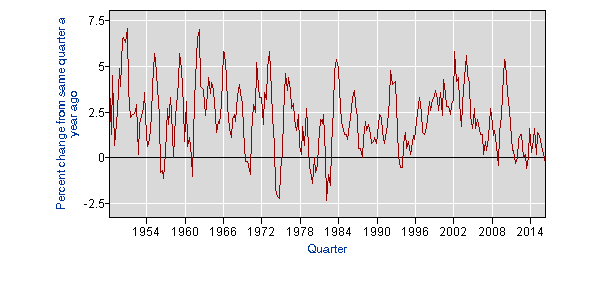October 09, 2016
The line that large numbers of people are out of work or seeing declining wages due to the wonders of new technology is really popular among pundits and elite-types. If technology is the culprit then we can all wring our hands and say how unfortunate it is that we have these losers, but it means that the folks on top are not to blame. After all, we aren’t going to blame the Steve Jobs or Elon Musks of the world for their great innovations.
For this reason, it is understandable that news outlets owned by rich people would endlessly promote this line even though it is utter nonsense with no basis in reality. Yet one more piece in this genre is a column by Ryan Avent in the Guardian. The column is taken from his new book, “The Wealth of Humans”, which touts the great developments in technology in recent years. The column sees large numbers of workers being displaced by technology, leading to wide-scale unemployment.
The obvious problem with this argument for those in the reality-based community is that it is a story of massive unemployment due to rapid productivity growth. But we haven’t seen rapid productivity growth in recent years. In fact, productivity growth has averaged just 1.0 percent annually over the last decade. That compares to a rate of almost 3.0 percent in the decade from 1995 and 2005 and the quarter century from 1947–1973.
Year over Year Change in Productivity

Source: Bureau of Labor Statistics.
So what we are seeing here is a continuing effort to misrepresent the nature of the problem of unemployment with something which clearly cannot offer a plausible explanation. If productivity growth is very slow then it doesn’t make sense to argue that people are losing their jobs because of rapid productivity growth.
So if productivity growth can’t explain unemployment and a weak labor market, then what does? It’s actually very simple. A lack of demand caused by cuts to the budget deficit and also by the large trade deficit. This is econ 101 folks. If we don’t have enough demand in the economy, then we see unemployment. This also disproportionately hurts less-educated workers as Jared Bernstein and I showed in our book, “Getting Back to Full Employment.”
But, if we insisted on reality-based answers then we would have to point to those who have insisted on austerity as the culprits. Also we would have to talk about the policies (e.g. over-valued currencies) that cause large trade deficits — and then people will confuse us with Donald Trump. It’s much better to blame technology.
One other point that should be evident to fans of basic logic. Technology does not make the “owners” of technology rich. Government policy makes certain people “owners” of technology. The stronger and longer patent and copyright protections of the last four decades were policy decisions. They have the predicted and actual effect of redistributing upward. Again, it may please the folks who own news outlets to pretend this was just technology, but those who live in the reality based universe can’t accept such nonsense.
And yes, this is discussed in my new book, Rigged: How Globalization and the Rules of the Modern Economy Were Structured to Make the Rich Richer.
Note: I have read Ryan Avent’s book. It is a much more serious discussion of technology and the economy than his column.







Comments